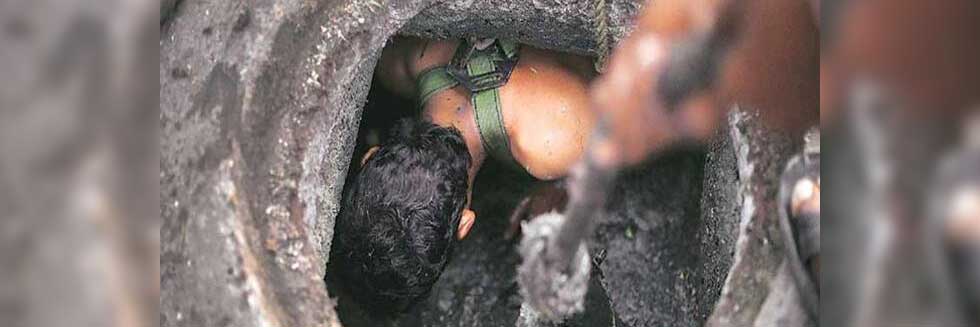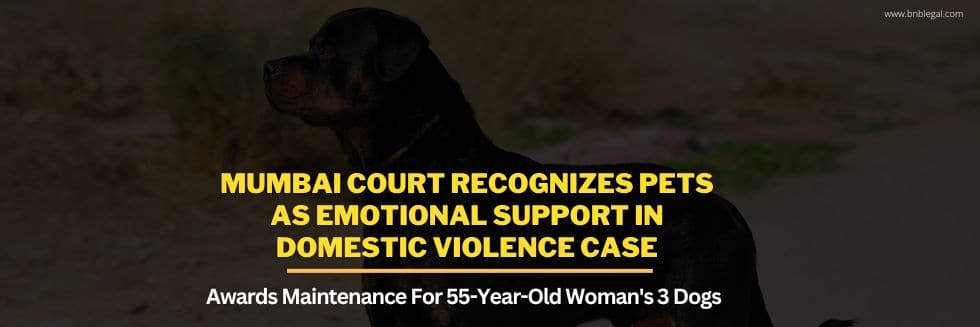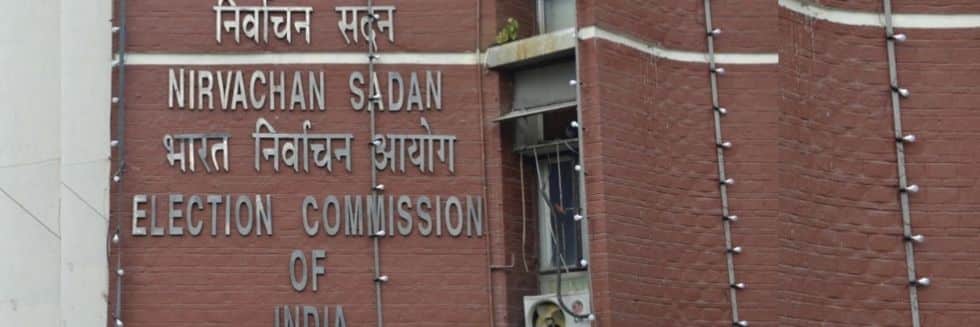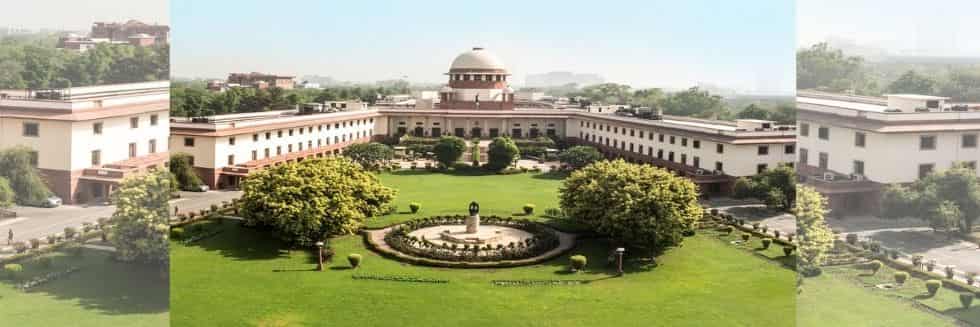On Wednesday, the Karnataka High Court issued a slew of directions to ensure the proper implementation of the Prohibition of Employment as Manual Scavengers and their Rehabilitation Act, 2013 (Manual Scavengers Act) while terming manual scavenging as the ‘most inhuman’ practice.
A division bench of Chief Justice Abhay Oka and Justice S Vishwajith Shetty was hearing a writ petition filed by the All India Council of Trade Unions (AICTU) and High Court Legal Services Committee, which had stated that the provisions of the Manual Scavenging Act were not being implemented.
As per sources, the High Court noted that there were “hardly any prosecutions” for offenses punishable under the legislation and therefore issued directions to the state government to implement the provisions of the Act immediately. The court also gave the state government a deadline of January 31 to file compliance reports regarding the directions it issued.
“There are hardly any prosecutions for the offense punishable under the Manual Scavengers Act. At least no such data is on record. In fact, under Section 22, it is provided that notwithstanding anything contained in the Code of Criminal Procedure 1973, every offense under the said Act is cognizable and non-bailable. Unless penal provisions are properly invoked, there cannot be effective implementation of the Manual Scavengers Act,” the High Court noted.
The High Court also noted in its interim order that if any citizen is forced to perform manual scavenging, it amounts to a violation of the fundamental rights guaranteed under Article 21 (protection of life and personal liberty) of the Indian Constitution.
“There can be no dispute that our Constitutional philosophy does not permit any form of manual scavenging. The right of a citizen to live with dignity is an integral part of the fundamental rights guaranteed to the citizens under Article 21 of the Constitution of India. There can be no dispute that manual scavenging is most inhuman and it infringes the fundamental rights guaranteed under Article 21,” Chief Justice Abhay Oka noted.
The court also specifically noted that there was hardly any implementation of “any provisions” of the Manual Scavenging Act and thereby called for exercising the court’s power to issue directions to the government. “We have found that there is hardly any implementation of the provisions of the Manual Scavengers Act and the Rules in the State of Karnataka. Therefore, this is a case where continuous monitoring will be necessary and the power of issuing continuing mandamus will have to be exercised,” the court observed.
It went on directing the Karnataka High Court Legal Services Committee and all the District Legal Services Authorities to convene meetings with all the stakeholders to assist them in complying with the directions of the Court and for implementation of the Manual Scavengers Act.
Further, under Article 47 of the Constitution, which is a part of the Directive Principles of the State Policy, the State is under an obligation to endeavor to improve the standard of living of its people, the judgment states.
Directions issued to the State government
- To place on record the details about the number of First Information Reports registered for the offenses punishable under the Manual Scavengers Act, the details of the cases in which charge sheets were filed, the details of the cases which are pending, and the details of the cases that resulted in a conviction.
- The figures of cases which resulted in acquittal to be also placed on record.
- To produce necessary material to show that the District Level Survey Committees as contemplated by sub-clause (c) of Rule 2 of the Manual Scavengers Rules have been duly constituted.
- To call for data from all districts for ascertaining whether the District Level Survey Committees have conducted surveys of manual scavengers and whether the Committees have published the final list of Manual Scavengers of the respective districts.
- To place on record the necessary details as regards the constitution of the State Level Survey Committees as well as the details regarding the number of meetings the Committee has held.
- To place on record comprehensive data about the survey of insanitary latrines throughout the State and the details about the conversion/demolition of insanitary latrines;
- To place on record the details relating to the final publication of the district-wise final lists of Manual Scavengers and the publication of State level final list of Manual Scavengers;
- To issue directions to all local authorities to implement the provisions of the Manual Scavengers Act and the Rules by specifically referring to the obligations and duties under various provisions. The compliance by the local authorities shall be monitored regularly by the State Level Monitoring Committee.
- To direct all local authorities to comply with the obligations under subsections (2) and (3) of Section 4 and to immediately ascertain the requirement of number of sanitary community latrines within their respective jurisdictions and thereafter, facilitate the construction of such latrines.
- To immediately initiate an awareness campaign on a large scale for elimination of the practice of open defecation and ensure that all local authorities comply with their obligation of eliminating the practice of open defecation in their jurisdiction. The State government shall take the help of NGOs and the Karnataka State Legal Services Authority to conduct the campaigns in rural areas;
- To place on record the steps taken for rehabilitation of manual scavengers as provided in Section 13 by stating whether there are any schemes of Central and State government for the rehabilitation of manual scavengers as contemplated by Section 13.
Plea before the High Court
Two writ petitions were filed by AICTU and High Court Legal Services Committee seeking to discontinue the practice of allowing/forcing sanitary workers to physically enter manholes, sewer lines, septic tanks, etc and to direct the State and Union Government to give a report on the action taken by them for removal of the inhuman practice and the implementation of the provisions of the Act.
The petitions concerned with the incident of three manual scavengers who died due to suffocation, while cleaning a pit in an apartment complex at Bengaluru. A writ of mandamus has been sought in the said petition for the implementation of the directions issued by the Apex Court in the case of Safai Karamchari Andolan and others vs. Union of India and other (2014).
This was one of the landmark decisions of the Supreme Court after the 2013 Act which laid down further guidelines on the rehabilitation of manual scavengers and compensation payment of rupees 10 lakh to the family of the deceased. The case was filed by Safai Karamchari Andolan, an NGO working for the rights of manual scavengers and to bring an end to this practice. It was filed against the flouting of the provisions of the 1993 Act as well as to recognize the practice of manual scavenging as violative of Article 21 of the Indian Constitution.
The Bench had reserved its order in November.






